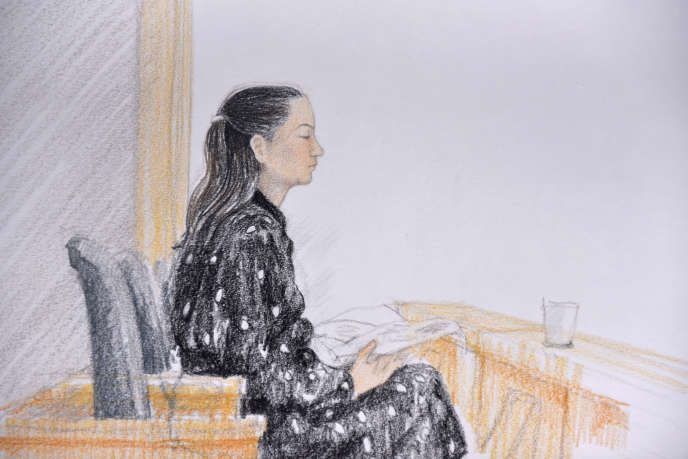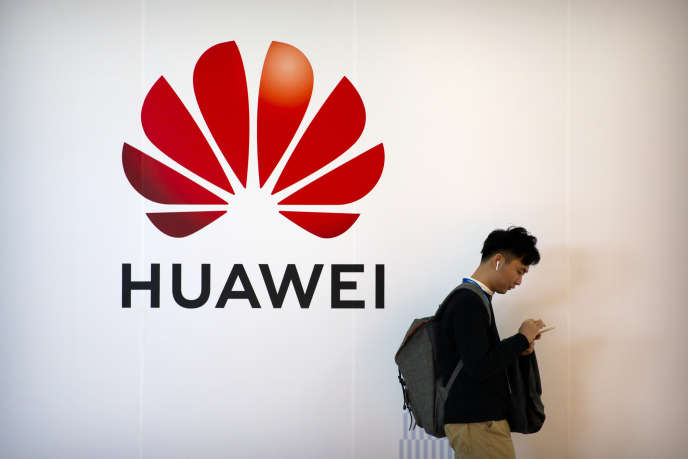American justice has further increased, Thursday, February 13, the pressure on the Chinese equipment supplier Huawei, again charged while the fate of the heir of the group, under house arrest in Canada, remains uncertain.
Brooklyn federal prosecutor Richard Donoghue has charged the telecoms giant with theft of trade secrets and circumvention of sanctions against North Korea, charges in addition to the prosecution for violation of the American sanctions against Iran launched in early 2019 .
Huawei has qualified the new charges as"Unfounded and unjust"accusing US prosecutors of wanting to "Irrevocably harm the reputation and activities of Huawei, for reasons related to competition rather than respect for the law":
"This is just the repackaging of civil charges almost 20 years ago that have never been used to justify any substantial penalties against Huawei."
Implicated against the backdrop of the trade war

Charged on the first indictment, Huawei’s chief financial officer and daughter of group founder Meng Wanzhou, currently under house arrest in the Vancouver area, remains cited in the new indictment without being charged with further embezzlement.
More than a year after his arrest, in December 2018, Canadian justice has still not ruled on his extradition requested by the United States. A spokesman for the Brooklyn federal prosecutor declined to tell Agence France-Presse whether this new charge could increase the likelihood of extradition.
The world's largest telecom equipment maker, Huawei has been implicated against the backdrop of a trade war between the United States and China by the Trump government, which highlights the risk of spying on behalf of the Chinese government. The United States has called on many countries not to use Huawei infrastructure for the deployment of the new 5G telephone network.
They also blacklisted the Chinese group in May 2019, de facto forcing American companies and residents of the United States to find other suppliers for their telecommunications equipment. Recognizing, however, that in some American rural areas the alternatives were difficult to find, the Trump administration had to issue a temporary license to Huawei, to allow American companies to find other suppliers. This temporary license, extended for the first time by 90 days in November, was further extended by 45 days on Thursday, making it run until 1st April.
Recruit employees of American companies

According to the services of the prosecutor Richard Donoghue, Huawei and several of its subsidiaries engaged in the theft of industrial secrets between 2000 and 2020. The supplier is notably accused of having attempted to recruit employees of American telecommunications companies, obtaining d 'them, by the way, technological information. The data has enabled him to develop products similar to those of his competitors, sold at lower selling prices, according to the indictment released on Thursday.
Among the examples cited in this new document: at a trade show in Chicago in 2004, a Huawei employee was discovered, in the middle of the night, taking photos of a competitor's computer server, which he had dismantled. The Chinese equipment supplier then claimed that the individual, who wore a badge on which was written "Weihua", was a junior employee who went to the show on his own initiative, although his CV mentions that he was a senior engineer in research and development. In 2013, Huawei launched, the prosecution said, an internal program offering bonuses to employees who obtain trade secrets from competitors.
In the indictment on Thursday, the prosecutor also claims that Huawei took part in "Many telecommunication projects" in North Korea. A leader had however affirmed in 2012, under oath, before an American parliamentary commission, that Huawei had no activities in this country.
The new indictment includes a total of 16 charges, including 3 new ones. Huawei pleaded not guilty to the first 13 counts in March. A total of five companies are charged, all subsidiaries of Huawei, as well as Meng Wanzhou and other group executives, "Who have not yet been arrested" and whose names were redacted in the indictment.




